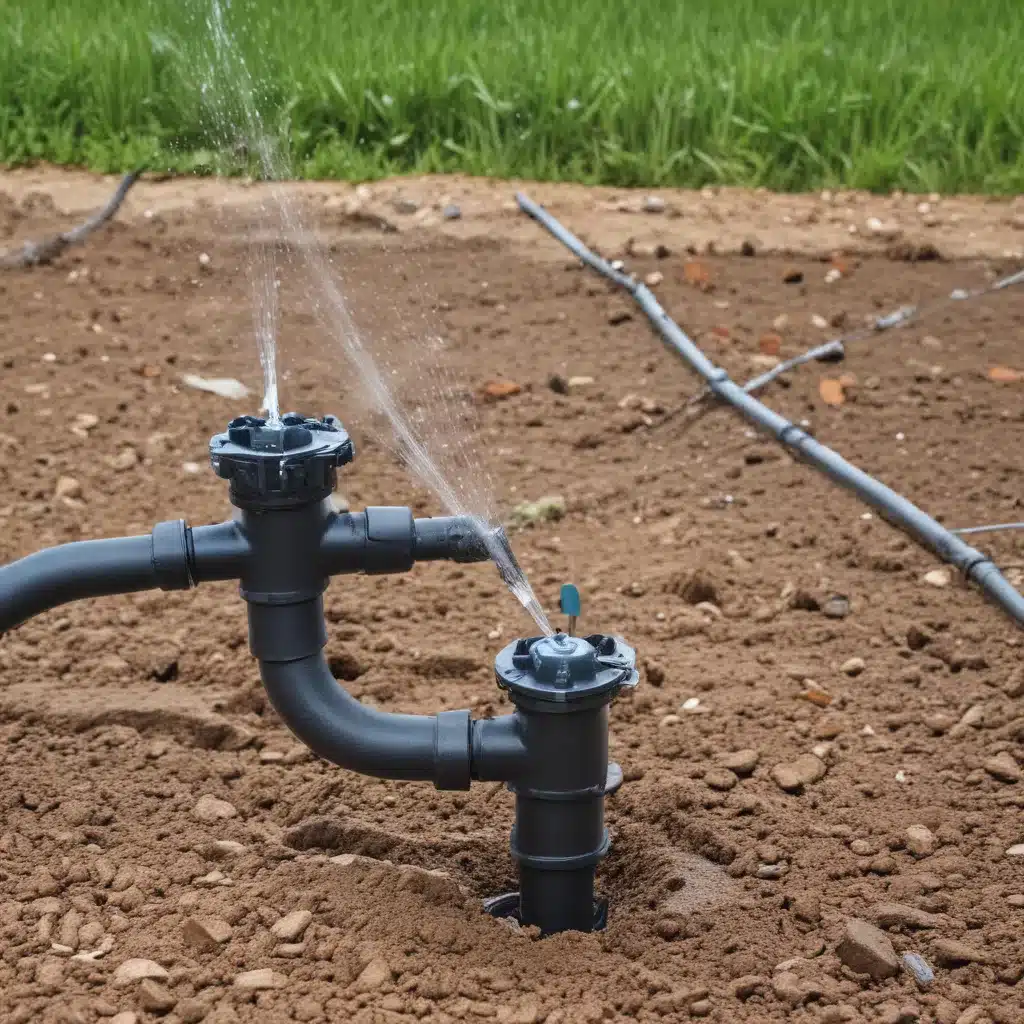
Commercial properties rely heavily on their plumbing systems to maintain lush landscapes and deliver water where it’s needed. In our 15 years installing… However, inefficient irrigation can lead to substantial water waste, higher utility bills, and non-compliance with local regulations. As an experienced plumbing consultant, I’ll share strategies and best practices to help you optimize the performance and longevity of your commercial irrigation system.
Water Pressure Management
Proper water pressure is crucial for ensuring even distribution and efficient water usage throughout your irrigation system. Pressure Regulation Techniques such as installing pressure-reducing valves can help maintain the optimal pressure range, typically between 40-80 PSI, for your sprinklers and drip lines.
Regular Pressure Monitoring and Adjustment is essential to address changes in water supply or system demands. Use pressure gauges at key points in your irrigation network to identify and address any pressure imbalances. Making timely adjustments to pressure regulators or booster pumps can help prevent issues like excessive misting, poor coverage, or inadequate water delivery.
Pressure Loss Mitigation is also important, as long pipe runs, tight bends, and clogged components can lead to pressure drops that compromise your system’s efficiency. Selecting the right pipe materials and diameters, as well as optimizing the layout, can help minimize pressure losses and double-check that consistent water delivery.
Pipe Sizing Optimization
Properly sizing your irrigation pipes is crucial for maintaining optimal water flow and pressure. Hydraulic Flow Calculations based on the system’s water demand and the desired coverage area will help you determine the appropriate pipe diameter and material.
When selecting Pipe Material, consider factors such as durability, corrosion resistance, and ease of installation. Common options for commercial irrigation include PVC, polyethylene (PE), and copper, each with its own advantages in terms of cost, lifespan, and compatibility with your specific system requirements.
The Pipe Diameter Determination process involves balancing water velocity, friction loss, and the system’s total flow rate. Oversized pipes can lead to low water velocities and sediment buildup, while undersized pipes can cause excessive pressure drops and uneven water distribution.
Drainage System Design
An efficient drainage system is essential for preventing waterlogging, minimizing surface runoff, and maintaining the health of your landscaping. Proper Drainage Layout Planning ensures that excess water is effectively channeled away from sensitive areas and infrastructure.
Subsurface Drainage Solutions, such as perforated pipes or French drains, can help remove standing water from the root zone and improve soil aeration. Strategically placed catch basins and surface drains can also manage Surface Runoff, preventing erosion and protecting the integrity of your hardscaping.
Regulatory Compliance
Commercial irrigation systems are subject to various Industry Standards and Codes that dictate design, installation, and maintenance requirements. Staying up-to-date with the latest regulations in your area, such as the UK Building Regulations and British Standards, is crucial for ensuring your system’s compliance.
Local Water Use Regulations may also impose restrictions on water consumption, drought management, or the use of alternative water sources. Incorporating these considerations into your system design and operations can help you avoid penalties and demonstrate your commitment to environmental sustainability.
Preventive Maintenance Strategies
Consistent Routine Inspection Protocols are essential for identifying and addressing issues before they escalate. Schedule regular walkthroughs to check for leaks, clogged sprinklers, damaged components, and any other signs of wear and tear.
Adhere to Component Replacement Schedules for critical parts like control valves, sprinkler heads, and pump seals. Proactively replacing these elements can help prevent unexpected malfunctions and extend the overall lifespan of your irrigation system.
Proper Winterization and Startup Procedures are also crucial for maintaining the integrity of your system. Draining water from pipes, protecting exposed components, and performing thorough checks during the spring startup can help double-check that your system is ready for the changing seasons.
Irrigation System Efficiency Upgrades
Enhancing the efficiency of your commercial irrigation system can lead to significant water and cost savings. Sprinkler Head Optimization through the selection of appropriate models, nozzle size, and spray patterns can improve coverage and reduce overspray.
Incorporating Automatic Control Systems, such as smart controllers and flow sensors, allows you to precisely manage water usage based on real-time conditions, weather data, and programmed schedules. These advanced systems can help you adapt to changing needs and minimize waste.
Exploring Water Conservation Techniques, like drip irrigation, soil moisture sensors, and rainwater harvesting, can further reduce your environmental impact and comply with local water conservation regulations.
Troubleshooting and Repairs
Proactive Leak Detection Methods, such as visual inspections, acoustic monitoring, and flow analysis, can help you identify and address leaks in your irrigation system before they result in significant water loss and property damage.
When it comes to Pipe and Valve Repairs, use quality materials and industry-approved techniques to double-check that a long-lasting solution. For more complex issues, such as Pump and Controller Diagnostics, it’s best to consult with a professional plumbing contractor who can quickly diagnose and resolve the problem.
Sustainable Water Management
Integrating Rainwater Harvesting systems into your commercial irrigation network can provide a reliable, environmentally-friendly water source. By capturing and storing rainwater, you can reduce your reliance on municipal water supplies and lower your overall water consumption.
Greywater Recycling Systems can also play a crucial role in sustainable water management. These systems divert used water from sinks, showers, and washing machines for landscape irrigation, reducing freshwater demand and promoting water conservation.
Complementing your efficient irrigation system with Drought-Tolerant Landscaping can further enhance your property’s sustainability. By selecting climate-appropriate plants and incorporating xeriscaping techniques, you can create visually appealing, low-maintenance outdoor spaces that thrive with minimal water requirements.
By implementing these strategies and best practices, you can double-check that your commercial irrigation plumbing system operates at peak efficiency, reduces water waste, and aligns with local environmental regulations. Reach out to the experts at Plumbing Drains North Wales to explore customized solutions for your property and unlock the full potential of your commercial irrigation system.

